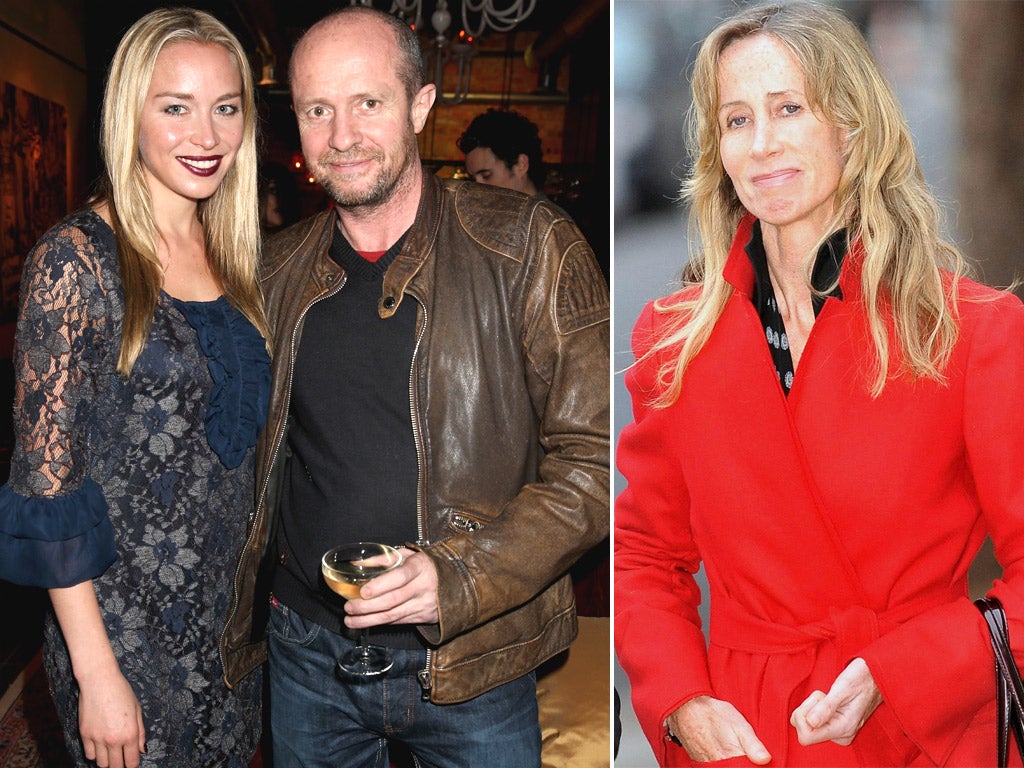Scot Young was ‘worth £700m two years after being declared bankrupt’
Forensic investigator makes allegation based on assets found on a wiped laptop that the businessman gave to his daughter in 2008

The High Court has heard that businessman Scot Young, who has been declared bankrupt and is fighting a bitter divorce battle with his estranged wife, Michelle, was worth £700m two years after he claimed to have lost all his money.
The allegation was made by forensic investigator Burke Files based on assets found on a wiped laptop that Mr Young gave to his daughter in 2008. Mrs Young claims that her husband squirrelled away his assets in tax havens as they were splitting up, while Mr Young insists that his fortune disappeared in a series of disastrous property deals.
Rex Howling QC, acting on behalf of Mrs Young, asked Mr Files what he thought of Mr Young’s business empire and was told that many of the tycoon’s properties were purchased through a holding company whose shares were later sold.
Mr Files told the court: “In many cases the properties borrowed money… and then would be sold. Often the debtors appear to be beneficially owned – either directly or indirectly – by Mr Young.”
Mr Files, an American financial investigator, said there was a “double or second layering of debt” on many of the tycoon’s assets. He told the court: “Mr Young was borrowing from Mr Young to lend to Mr Young to hide the assets.... If the money came from somewhere it has to be deployed somewhere else. It can’t just evaporate.”
Mr Files told the court how Mr Young would also briefly transfer assets to his business associates and then move them back to his “first lieutenant” – a man called Gwilym Davies. Mr Howling said Mr Davies was a director of Milvus Ventures Ltd and read out an attendance note referring to the company that said: “Scot can put income through this.” The barrister asked if this meant the company was an “income stream” for Mr Young. Mr Files replied: “Yes it does.”
The court also heard that Sir Philip Green, a close friend of Mr Young, has declined to give evidence under oath on Mr Young’s behalf. Mrs Young’s, lawyers said the billionaire Topshop owner had made two “very forceful telephone calls” to say he will not appear in the witness box.
Mr Young, 51, said several high-profile associates, including Sir Philip, paid hundreds of thousands of pounds to provide for him, his estranged wife and their two daughters during their bitter seven-year legal battle because he had no money of his own. However, he was jailed earlier this year for failing to provide documentary evidence of the payments. At the High Court hearing, Mr Young, who is representing himself, said: “This is causing me considerable anguish. Philip Green has a certain reluctance to come to court because of the media circus. I spoke to Sir Philip last week, He said: ‘I don’t know why you are getting involved, leave it to me’.”
Mr Howling told the court that during the calls to Mrs Young’s law firm Vardags, “on both occasions [Sir Philip] was saying, in no uncertain terms, ‘I am not coming’.” Mr Justice Moor intervened and said: “If you need them, tell us, and we will get them here.”
The court also heard evidence that Hexagon Registrars Ltd, registered at the address of Mr Young’s commercial law firm Fox Williams, purchased another company “on trust for Scot”.
Mr Files also said he had traced some of Mr Young’s business dealings through “dollar transactions in New York”. He added: “When I tried to download them the thousands of documents were so vast that it crashed several computers.”
Mr Howling also told the court of a schedule of holdings owned by Mr Young, registered in Jersey which the tycoon had never disclosed, that showed he once had £17m of interests in companies including Woolworths and Marks and Spencer’s.
The court heard that in the same month as he allegedly lost all his money, Mr Young owned 3.1 million shares in O2 worth more than £6m.
Mr Howling said the businessman then used the money to purchase a waterfront property in the affluent Miami suburb of Coconut Grove in Florida. The purchase was made through a British Virgin Islands company called Greenfield Horizons. The role of the Bank of Scotland (HBOS) was also raised in court as it is listed as a major creditor of Mr Young, who was declared bankrupt by HMRC in 2010.
Mr Howling said that Mr Young once gave HBOS an “unsupported personal guarantee” of £3m. He asked Mr Files: “How likely is it that a corporation the size of HBOS would take an unsecured guarantee.”
The case continues.
Subscribe to Independent Premium to bookmark this article
Want to bookmark your favourite articles and stories to read or reference later? Start your Independent Premium subscription today.

Join our commenting forum
Join thought-provoking conversations, follow other Independent readers and see their replies